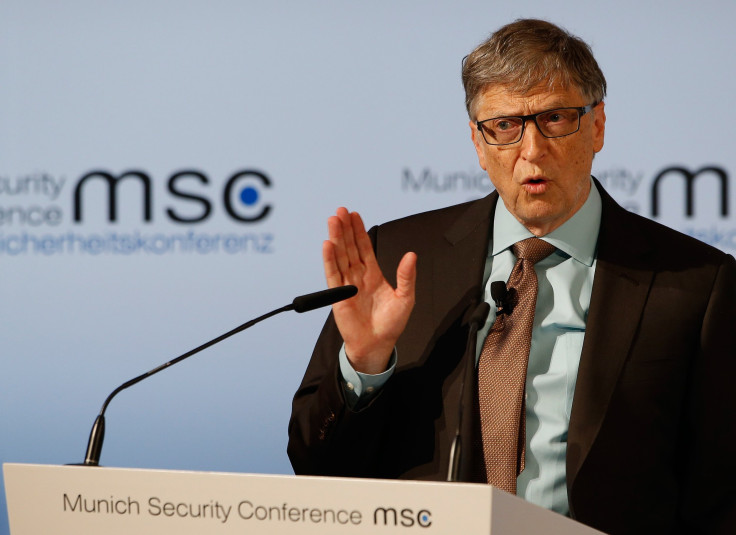What Will War Look Like In The Future? Terrorists Could Kill Millions With Biological Weapons, Bill Gates Warns

Wars of the future could see terrorists kill tens of millions of people through bioterrorism in the next 15 years, Bill Gates warned global leaders this week gathered at a security conference. Gates, the worlds richest man and the co-founder of Microsoft, said world leaders were ignoring "the link between health security and international security at our peril.”
“The next epidemic could originate on the computer screen of a terrorist intent on using genetic engineering to create a synthetic version of the smallpox virus ... or a super contagious and deadly strain of the flu,” Gates said Saturday during the Munich Security Conference in Germany. “Whether it occurs by a quirk of nature or at the hand of a terrorist, epidemiologists say a fast-moving airborne pathogen could kill more than 30 million people in less than a year. And they say there is a reasonable probability the world will experience such an outbreak in the next 10 to 15 years.”
He added: “It’s hard to get your mind around a catastrophe of that scale, but it happened not that long ago. In 1918, a particularly virulent and deadly strain of flu killed between 50 million and 100 million people. You might be wondering how real these doomsday scenarios really are. The fact that a deadly global pandemic has not occurred in recent history shouldn’t be mistaken for evidence that a deadly pandemic will not occur in the future. And even if the next pandemic isn’t on the scale of the 1918 flu, we would be wise to consider the social and economic turmoil that might ensue if something like ebola made its way into urban centres.”
His remarks aren't mere science fiction. British and U.S. intelligence agencies have warned that terror groups like the Islamic State in Syria and Iraq have sought to create biological weapons to carry out their vision of an Islamic caliphate. And security specialists have increasingly warned in recent years that changes in molecular biology could make developing biological weapons more accessible, the Guardian reported.
U.S. military officials have said they are already changing the way troops prepare for conflict in part to prepare for wars of the future. Such conflicts “could have conventional forces, Special Forces, guerrillas, terrorists, criminals all mixed together in a highly complex terrain environment, with potentially high densities of civilians,” Gen. Mark A. Milley, the Army chief of staff, told the New York Times in 2016.
Gates said new vaccines and drugs could keep epidemics from spreading. “Most of the things we need to do to protect against a naturally occurring pandemic are the same things we must prepare for an intentional biological attack,” he said. “Getting ready for a global pandemic is every bit as important as nuclear deterrence and avoiding a climate catastrophe. Innovation, cooperation and careful planning can dramatically mitigate the risks presented by each of these threats.”
© Copyright IBTimes 2024. All rights reserved.






















